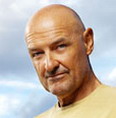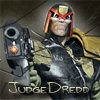ORANGE
Matrix Trooper

Posts: 198
Joined: 12/3/2007
Status: offline

|
Macworld ran a blog item on the diminishing allure of the Mac to artists and graphic designers in the United States. The next day, the San Francisco Chronicle published a story, in the business section, explaining how Mac users in California are a lot more socially and creatively diverse -- read: more strait-laced and less avant-garde -- than you might believe. This month's Computerworld will contain a report by ersatz demographer Mike Elgan that explicitly poses the question: Is Apple the new Microsoft?
Elgan's research on U.S. Census data drives home a point that the Mac vanguard has been wrestling with for a while: The hedonistic, transgressive, radical ethos (and stereotype) that once characterized the Mac community doesn't represent reality anymore. The decline of urban coastal Mac user groups, the increase in the Mac-using population in the interior U.S. and the overall diversification of the Mac community are facts. What's more, Elgan argues, these trends are a function of the growing acceptance of Macs among the American public.
Acceptance? Really? Has Elgan forgotten about the majority of offices that have policies in effect barring Mac use at work, or the Justice Department's recent decision to relax court-ordered restrictions on Microsoft's business practices in the face of continuing opposition from the White House?
Not at all. There is, he says, a vocal, virulent -- and sometimes violent -- anti-Mac movement, but it doesn't negate years of opinion surveys that show a marked increase in tolerance in most Americans' attitudes toward Macs and Mac users. In 1998, for example, a Gallup poll found that only 33% of Americans thought that Macs could perform standard pencil-pushing tasks like running Microsoft Office. By 2007, that figure had risen to 59%.
Growing acceptance means a decline in social stigma associated with using Macs, and a consequent shift in the politics of declaring oneself a Mac user. The more Mac users come out, the more accepting people are around them, and the more accepting the public becomes, the more people switch to Macs.
Elgan's study shows that the number of self-described Mac users in the U.S. has quadrupled since 1998, and the biggest increases are in the country's more socially conservative areas.
Utah is the poster state. Between 1990 and 2006, for example, it went from having the 38th-highest concentration of Mac users in the country to 14th highest. In that same time period, the percentage of Mac users who lived in large cities declined from 45% to 23%. Even more counterintuitive, from 2000 to 2006, the states with the fewest Apple stores had above-average increases in the number of Mac users. And places, like Utah, where a majority of people still believe Saddam Hussein had anything to do with 9/11 -- the reddest of red, the squarest of rectangle states -- saw even larger increases.
Some of the growth in the number of Mac users in conservative areas could be because of migration. And yes, some on-the-barricades members of the Mac community have gotten older and mellower and moved out to the heartland. But the larger trend is simply that as more latent Mac users switch to Macs, they don't need to change or assimilate to fit into the mainstream because they are already very much a part of it.
"The demographic characteristics of the Mac community are converging with those of the mainstream," Elgan says. If you're from a state like Utah or Nebraska, chances are you're going to share a lot with your neighbors whether you're a Mac user or a PC user: "They're rural," Elgan says, "they're religious, and they're Republican."
So what does this all mean for American culture at large?
"Society is beginning to say that being a Mac user is not such a big deal," Elgan says. "What that means for Mac users is that their platform choice won't have the centrality to their identity it once did. Being a Mac user then becomes one of a variety of an individual's competing identities."
In other words, as the challenges associated with using a Mac diminish, so does the primacy of the identity that that act of self-discovery and self-assertion once forged. It means that the culture once associated with the Mac becomes less distinctive from the mainstream.
Elgan doesn't believe that these trends spell an end to Mac users' "associational" life. The process he's describing is not unlike the one experienced by so many immigrant or minority groups in America that fought against discrimination, moved beyond their enclaves and then felt a little sad that they lost the embracing sense of uniqueness and community that they once enjoyed.
As Mac users meld into the broader population, places like New York's Lower East Side and the Castro district in San Francisco will inevitably lose some of their appeal. As more Mac users come out in more places, the diversity of creatively expressive politics and lifestyles will come out with them, and the tolerant will multiply.
For some of the pioneers from the edgy, embattled, ecstatic "good old days," this may be bittersweet. "But isn't that what everyone wanted 20 years ago?" Elgan asks. "Just to be treated like everyone else?"
_____________________________
|
 Printable Version
Printable Version



















 ). Marketing had 232 GB of Mac data on the server, yeah I was more than a lil pissed at the end of the day.
). Marketing had 232 GB of Mac data on the server, yeah I was more than a lil pissed at the end of the day.






 New Messages
New Messages No New Messages
No New Messages Hot Topic w/ New Messages
Hot Topic w/ New Messages Hot Topic w/o New Messages
Hot Topic w/o New Messages Locked w/ New Messages
Locked w/ New Messages Locked w/o New Messages
Locked w/o New Messages Post New Thread
Post New Thread